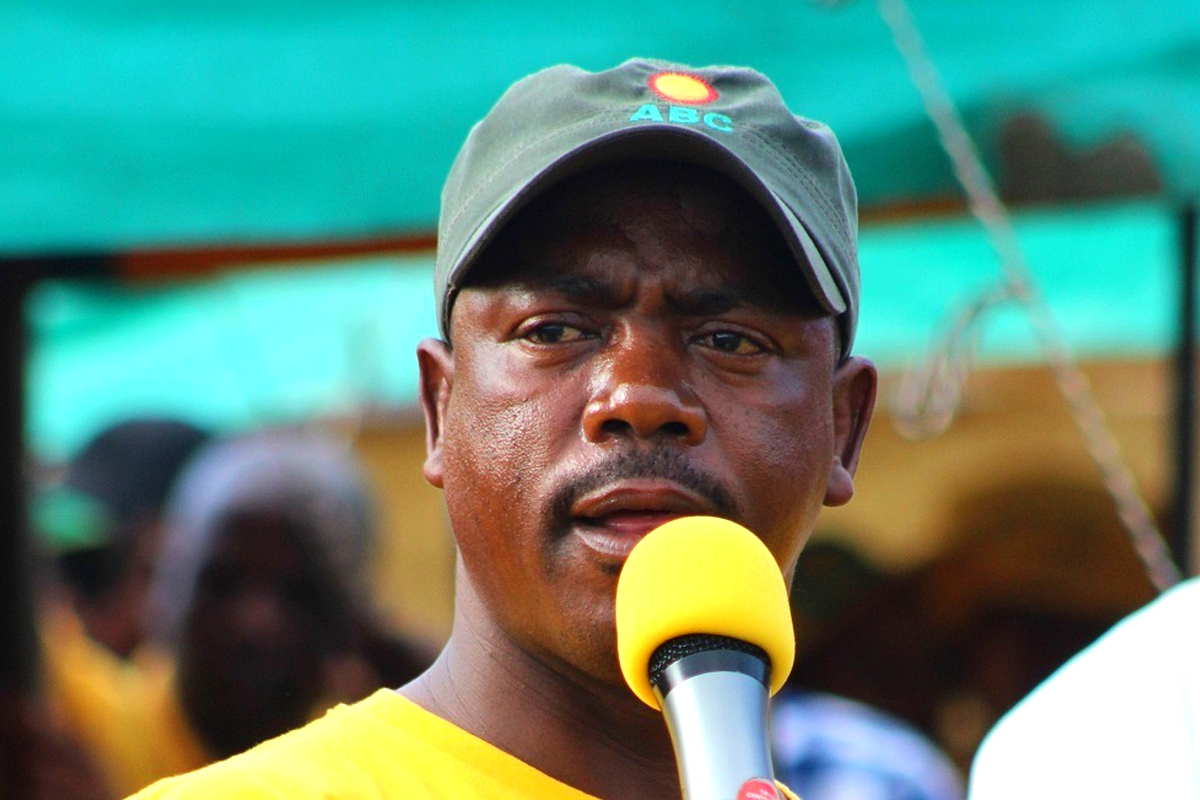LESOTHO is one of the 45 global countries that have pledged urgent action and investment to protect nature and shift to more sustainable ways of farming.
business
Nov. 9, 2021
OWN CORRESPONDENT
4 min read
Lesotho pledges to invest in farming

Minister of Energy and Meteorology, Mohapi Mohapinyane
Story highlights
The pledge was made over the weekend during the 26th Conference of Parties (COP26) Summit which marked the end of week one of the Summit, with negotiations gathering pace.
Mohapi Mohapinyane, the Minister of Energy spearheads the Lesotho delegation that is participating at the COP26 discussions.
The main aim of the talks is to secure enough national promises to cut greenhouse gas emissions, mostly from coal, oil and gas to keep the rise in the average global temperature to 1.5 Degrees Celsius.
Supporters for Sustainable Agriculture Policy Action Agenda for the Transition to Sustainable Agriculture and Global Action Agenda for Innovation in Agriculture include Lesotho, Australia, Uganda, Madagascar, India, Tanzania, Vietnam, Nigeria, Laos, Indonesia, Guinea, Ghana, Germany, Philippines, Ethiopia, UK, Colombia, Costa Rica, Morocco, Netherlands, New Zealand, Nigeria, Philippines, Sierra Leone, Spain, Switzerland and UAE.
FACT Roadmap supporting states include Belgium, Brazil, Côte D’Ivoire, Democratic Republic of Congo, Denmark, France, Gabon, Italy, Japan, Liberia, Malaysia, Norway, Paraguay, Peru, Republic of Congo, Republic of Korea, Uruguay, US, European Commission.
Also, 95 high profile companies from a range of sectors have committed to being ‘Nature Positive’, agreeing to work towards halting and reversing the decline of nature by 2030.
Governments and businesses are joining farmers and local communities at COP26, securing new agreements to protect nature and accelerate the shift to sustainable agriculture and land use practices by making them more attractive, accessible and affordable than unsustainable alternatives.
According to the COP26 reports, the 45 governments that signed the pledge include 26 that support either the Policy Action Agenda for the Transition to Sustainable Agriculture or the Global Action Agenda for Innovation in Agriculture, and 28 countries that participate in the Forest, Agriculture and Commodity Trade (FACT) Dialogue (with some countries participating in both).
The 26 nations have set out new commitments to change their agricultural policies to become more sustainable and less polluting, and to invest in the science needed for sustainable agriculture and for protecting food supplies against climate change, laid out in two ‘Action Agendas’.
Examples of national commitments aligned with this agenda include Brazil’s plan to scale its ABC+ low carbon farming programme to 72m hectares, saving 1billion tonnes of emissions by 2030, Germany’s plans to lower emissions from land use by 25m tonnes by 2030 and the UK’s aim to engage 75% of farmers in low carbon practices by 2030
The UK also announced funding of £500 million to support the implementation of the Forest, Agriculture and Commodity Trade (FACT) Roadmap that was launched during the World Leaders Summit earlier this week, in which 28 countries are working together to protect forests while promoting development and trade.
Enjoy our daily newsletter from today
Access exclusive newsletters, along with previews of new media releases.
A further £65 million will support a ‘Just Rural Transition’ to help developing countries shift policies and practices to more sustainable agriculture and food production.
Commitments made by the countries will help to implement the Glasgow Leaders’ Declaration on Forests and Land Use which is now endorsed by 134 countries covering 91% of the world’s forests.
The Declaration aims to halt and reverse forest loss and land degradation by 2030.
COP26 President, Alok Sharma said: “The commitments being made today shows that nature and land use are being recognised as essential to meeting the Paris Agreement goals, and will contribute to addressing the twin crises of climate change and biodiversity loss. As we look ahead to negotiations in week two of COP, I urge all parties to come to the table with the constructive compromises and ambitions needed.”
The World Bank will commit to spending $25 billion in climate finance annually to 2025 through its Climate Action Plan, including a focus on agriculture and food systems.
In a show of similar commitment from the private sector, almost 100 high-profile companies from a wide range of sectors committed to becoming ‘Nature Positive’. Commitments include supermarkets pledging to cut their environmental impact across climate and nature-loss and fashion brands guaranteeing the traceability of their materials. LeNA






